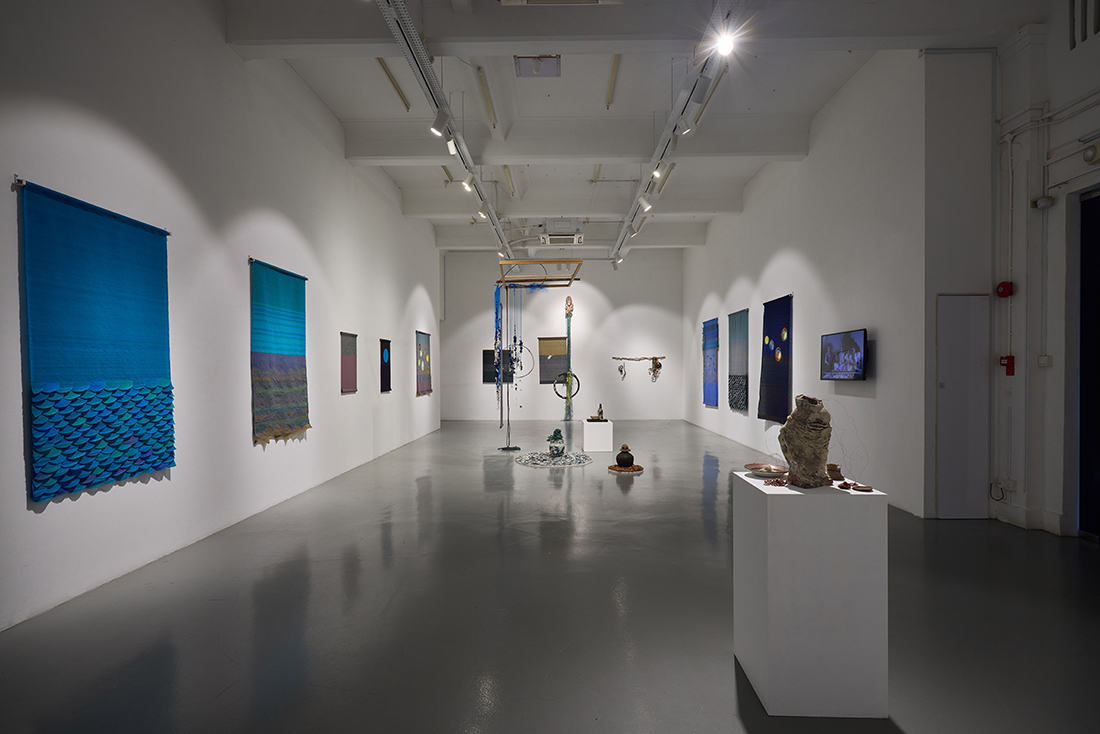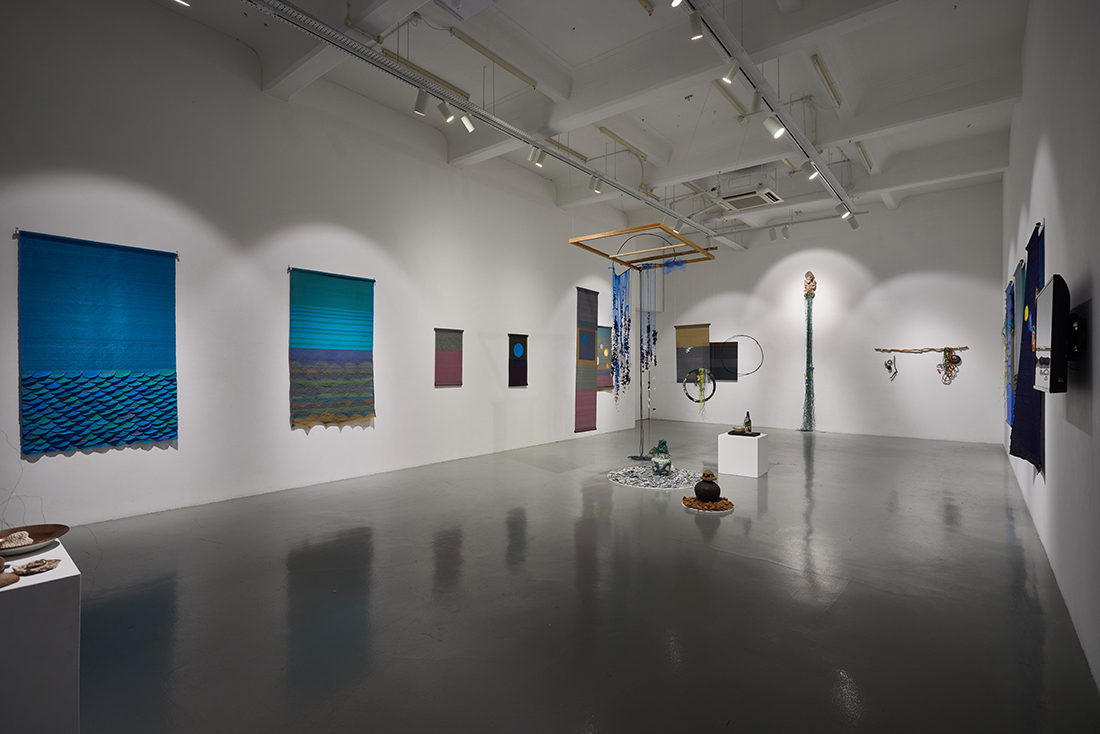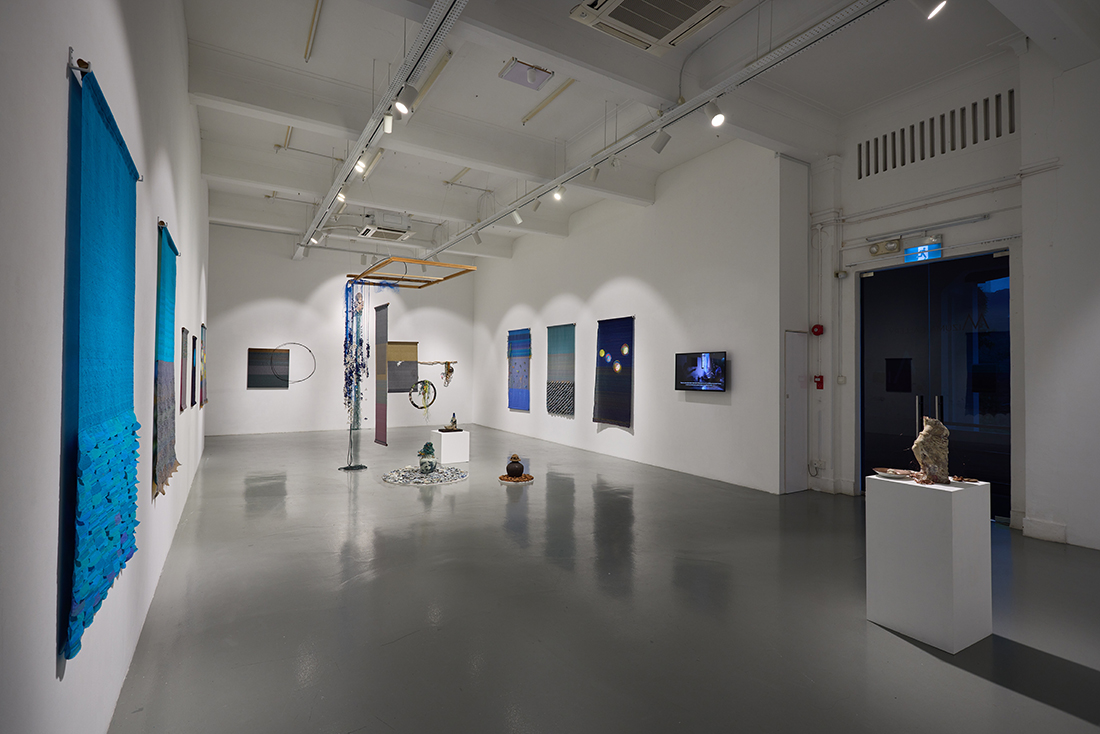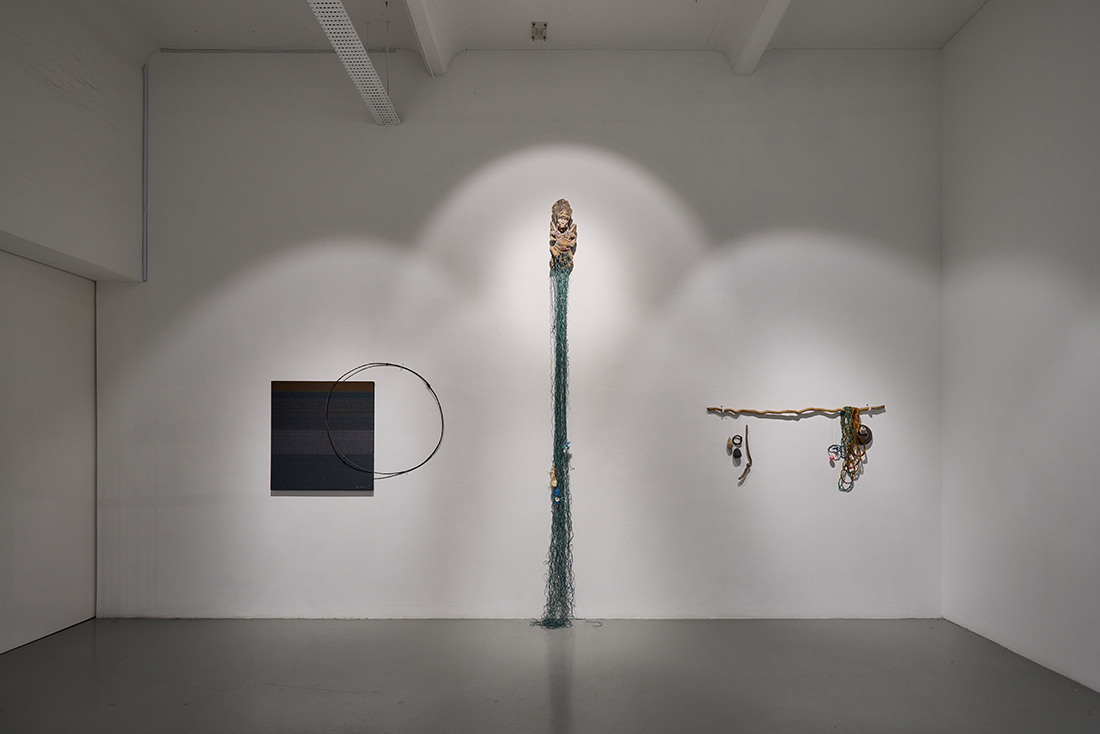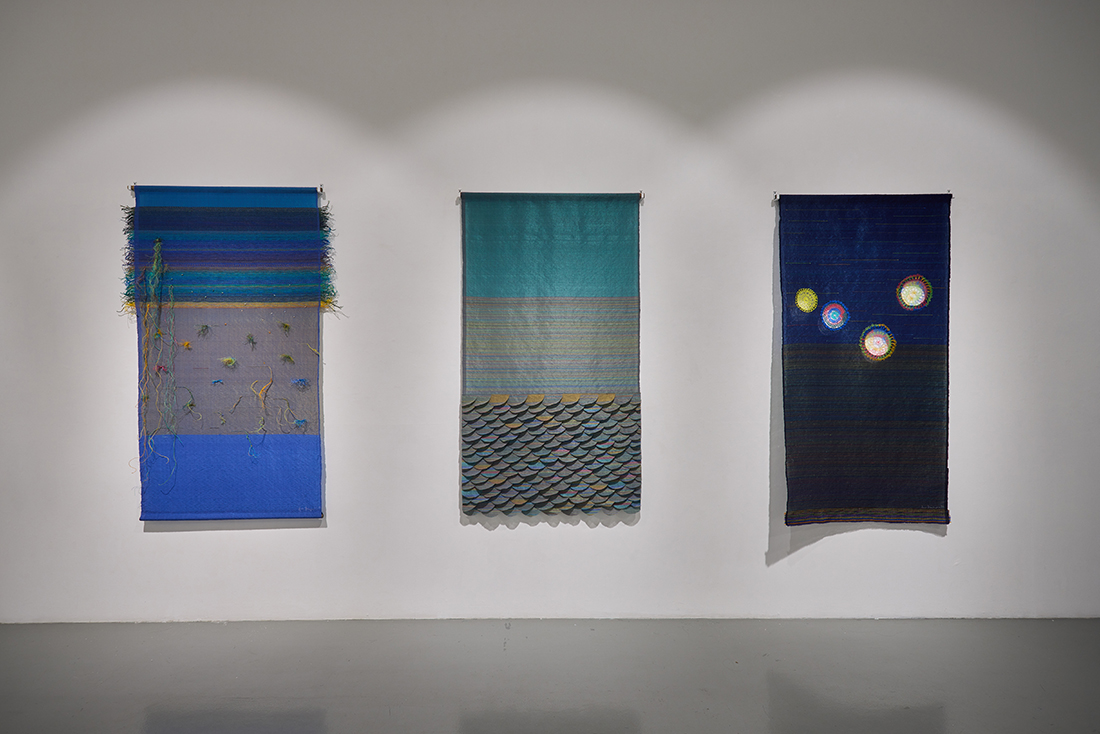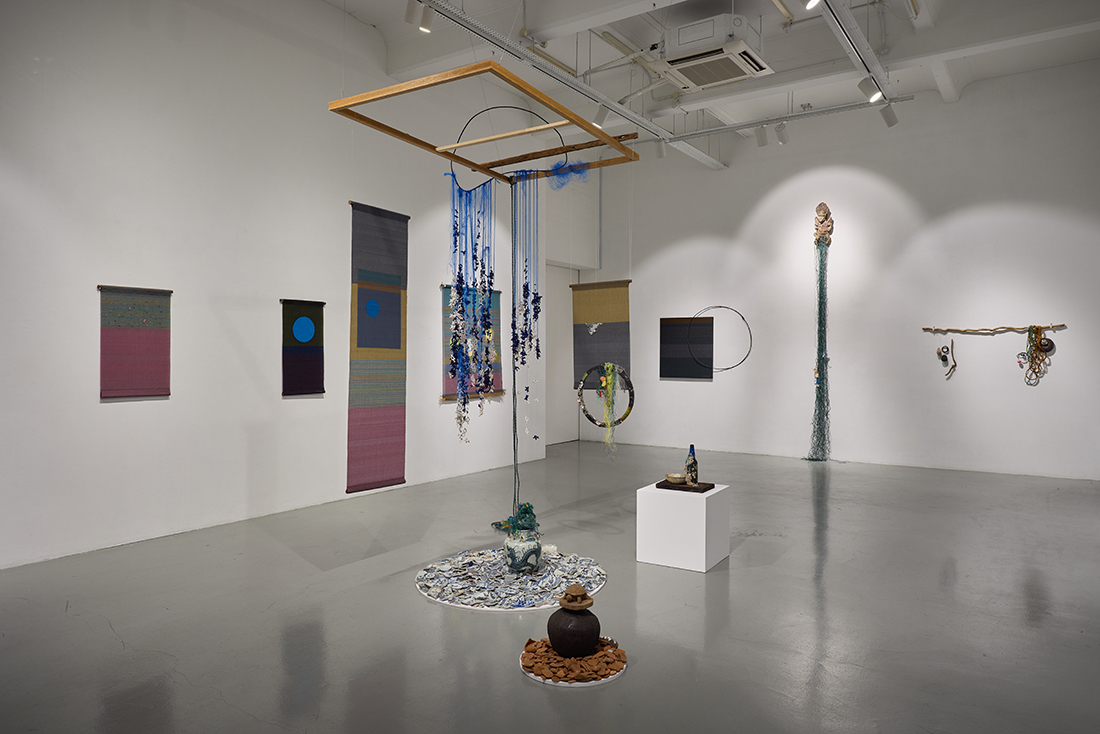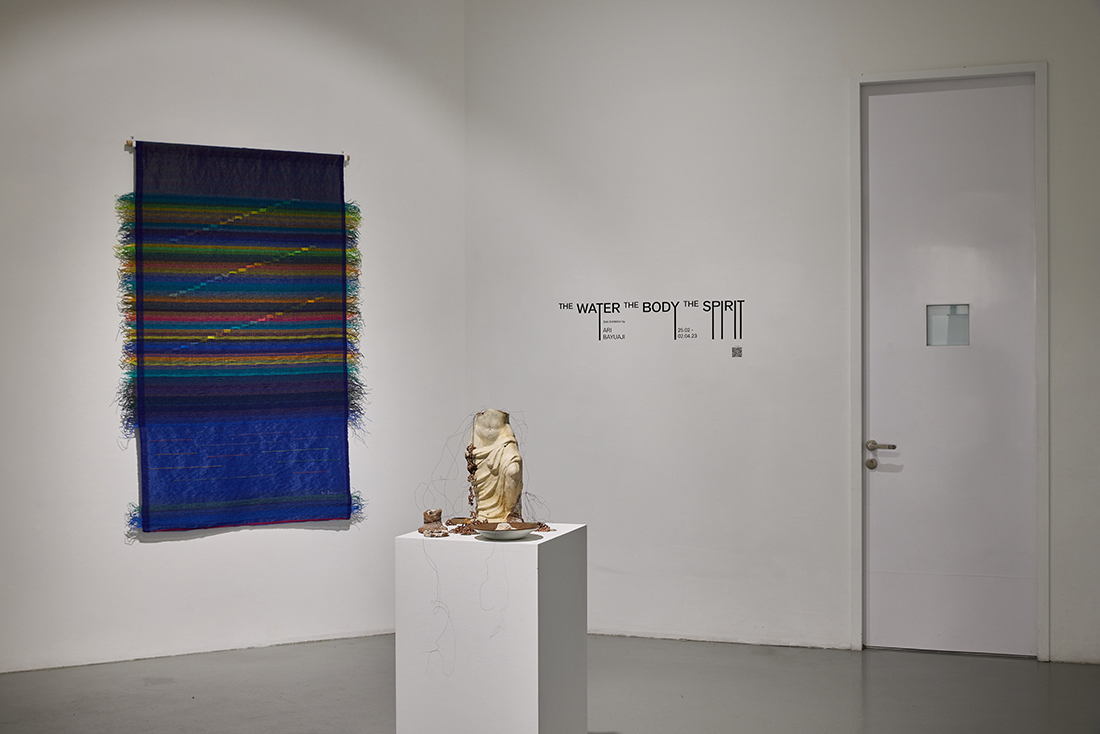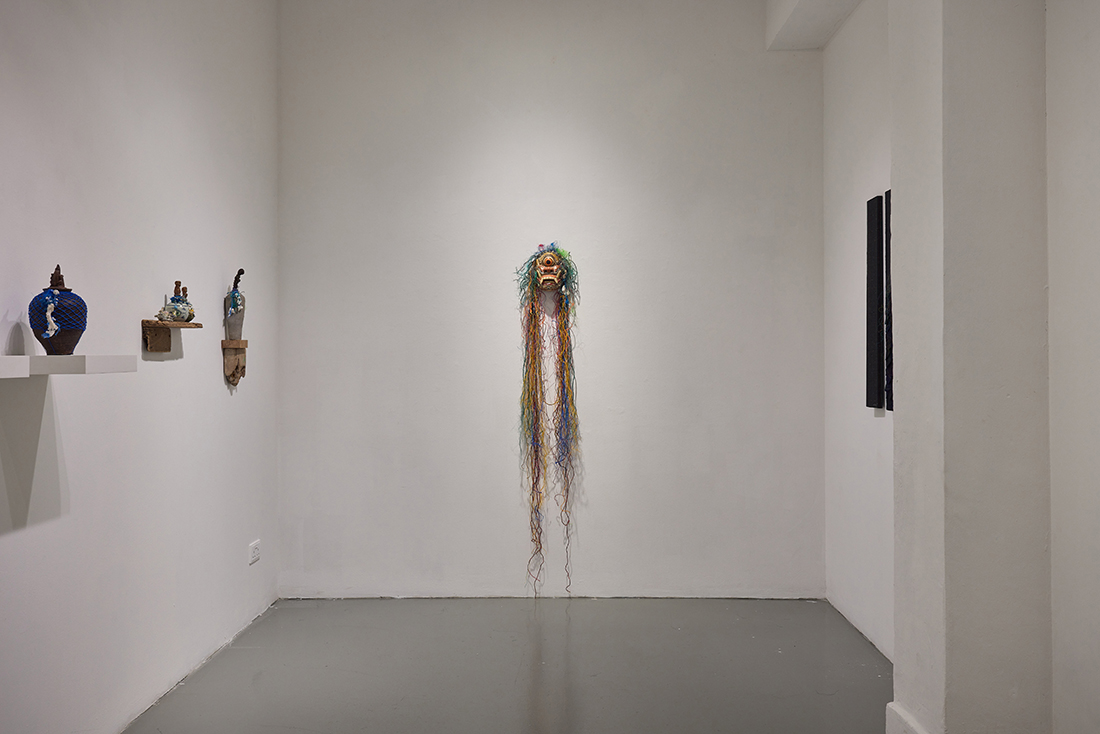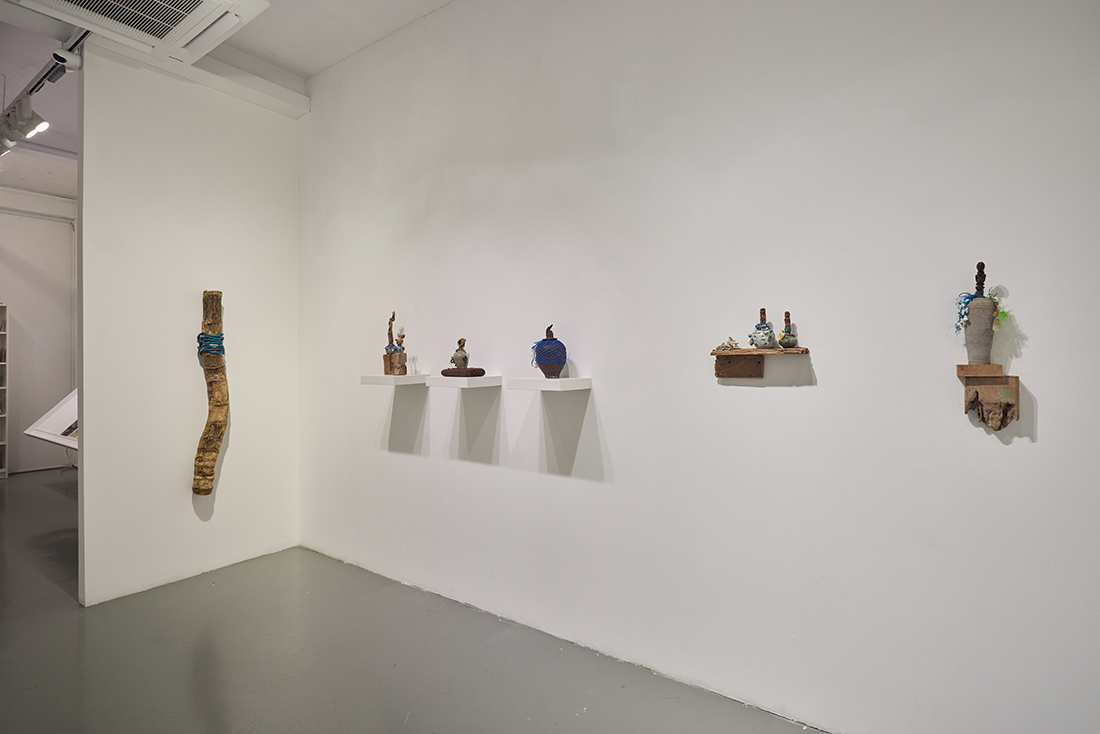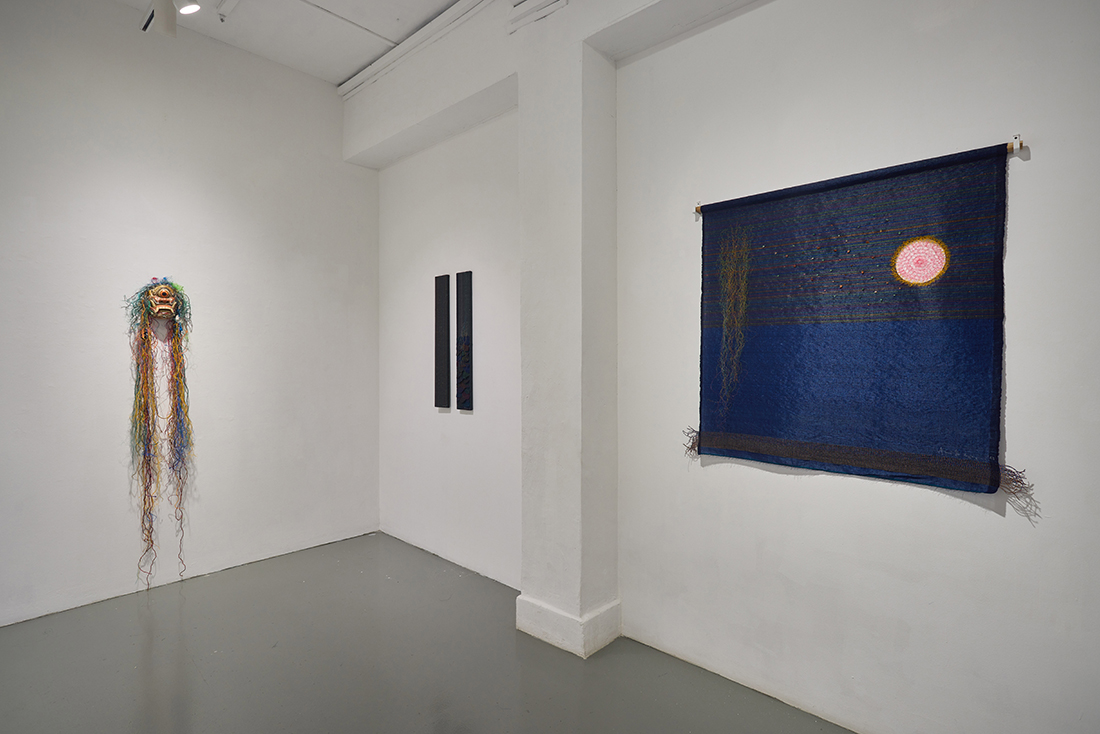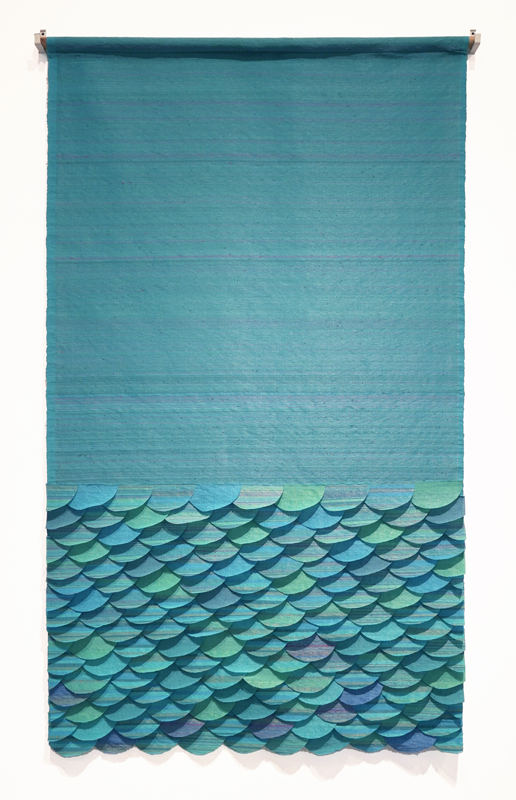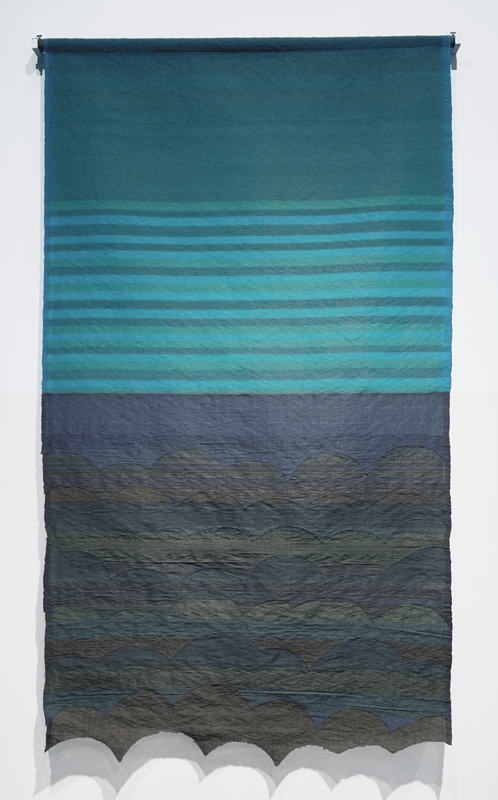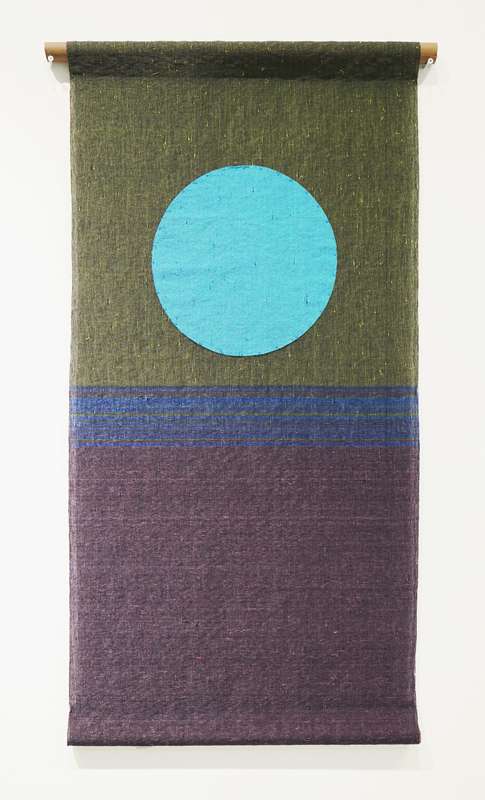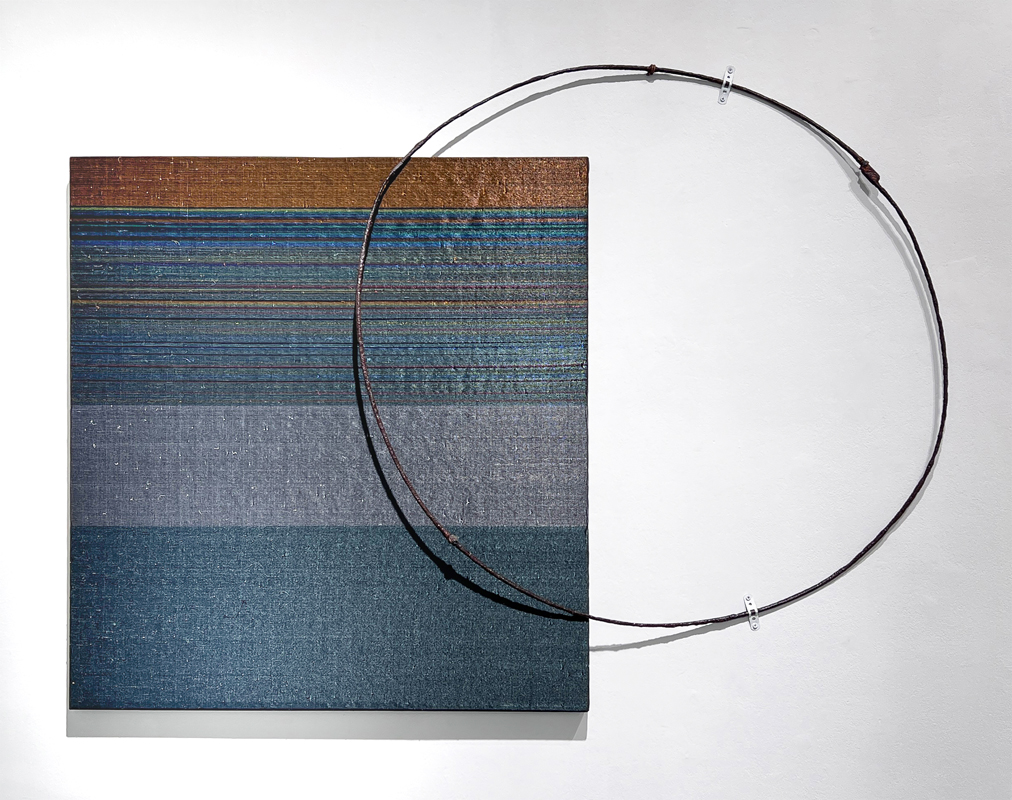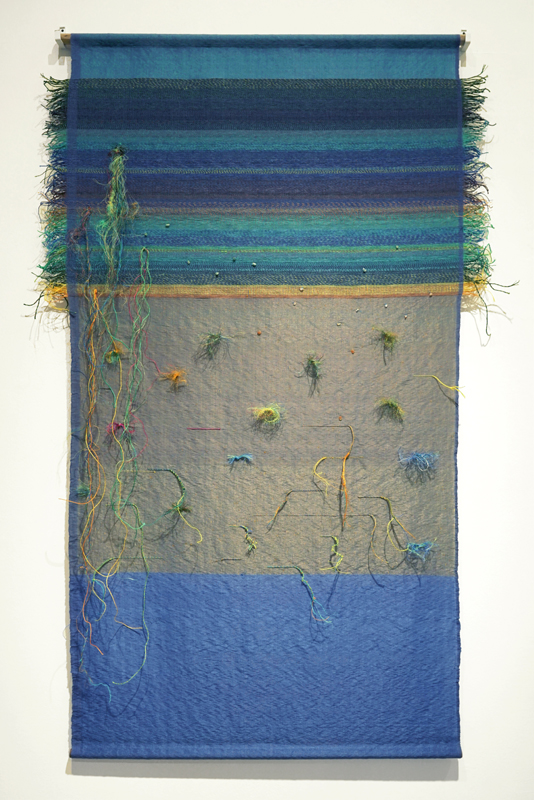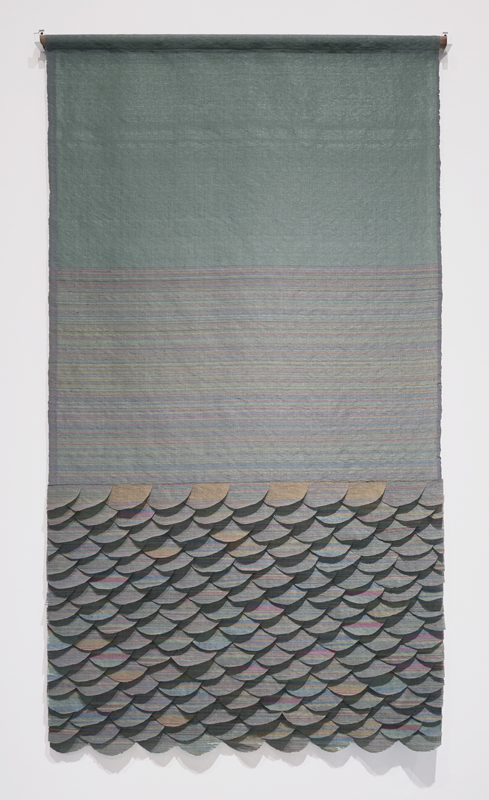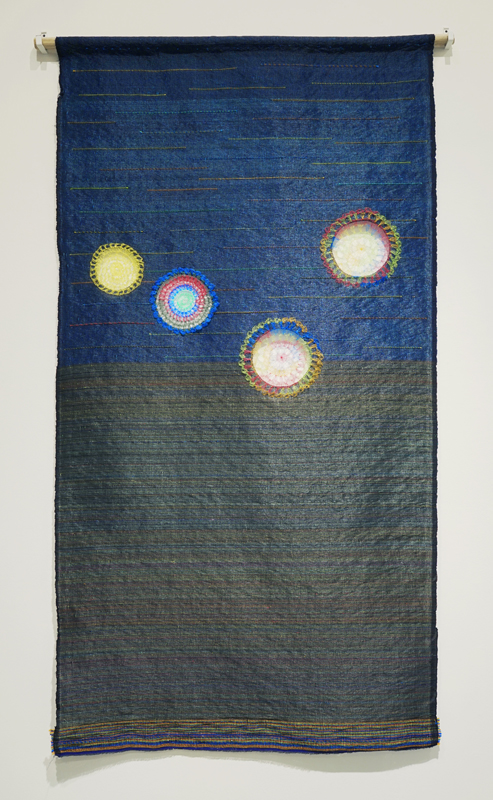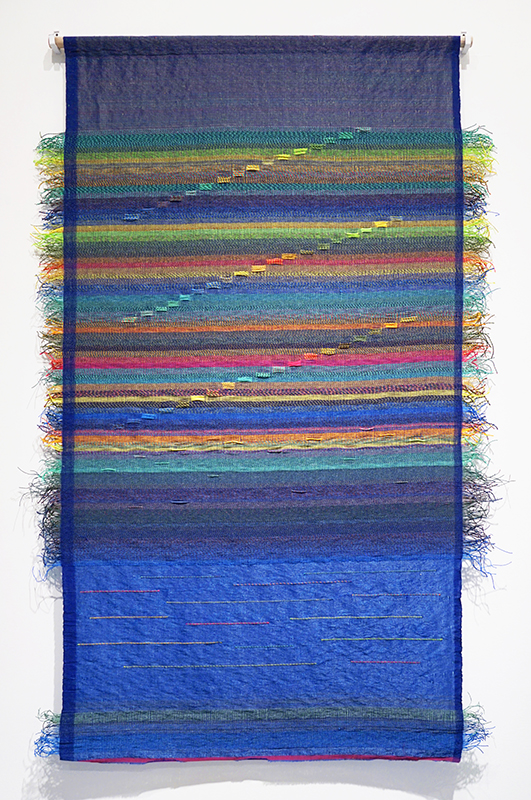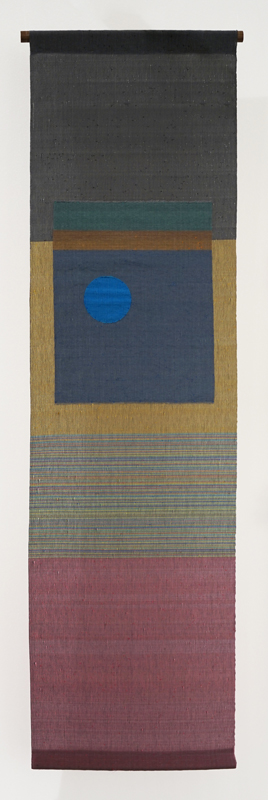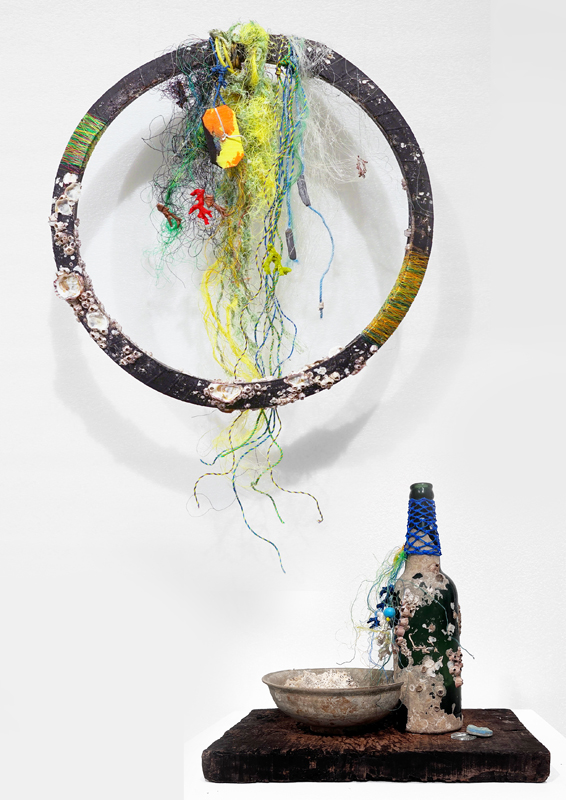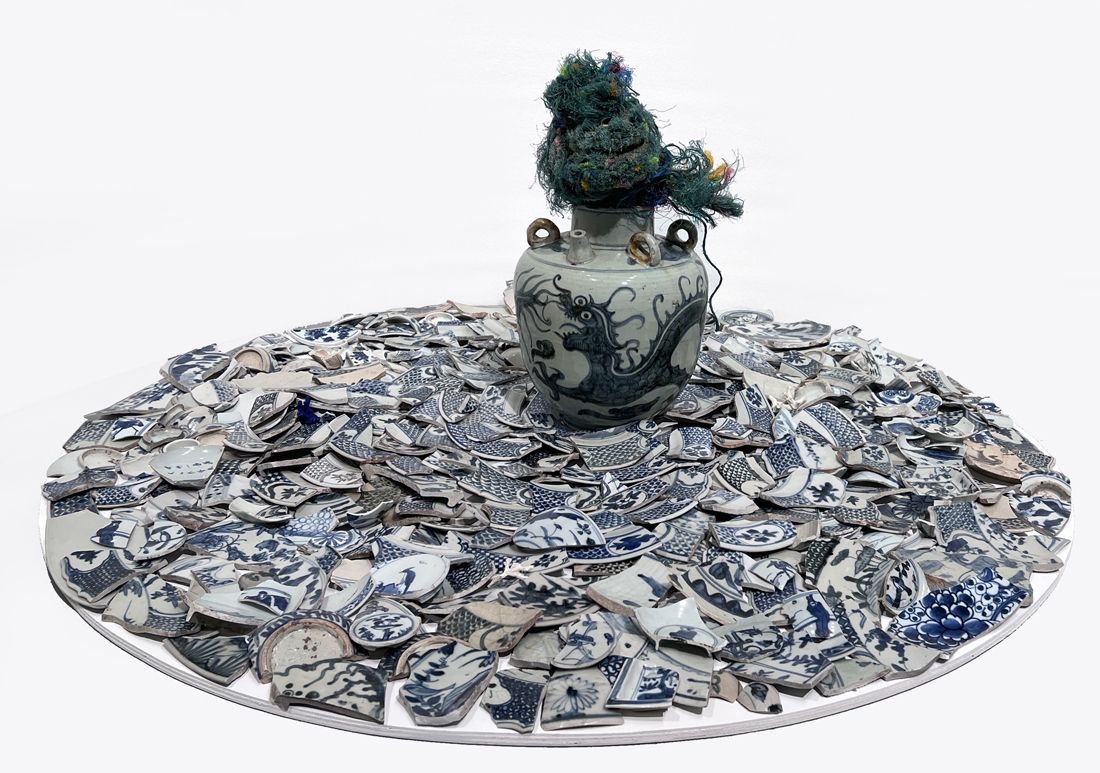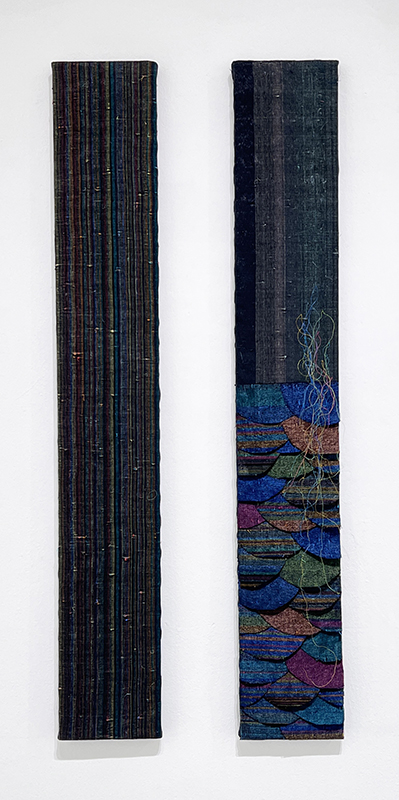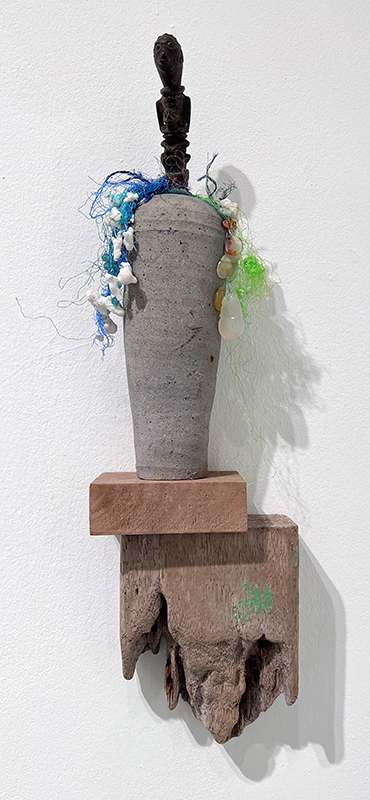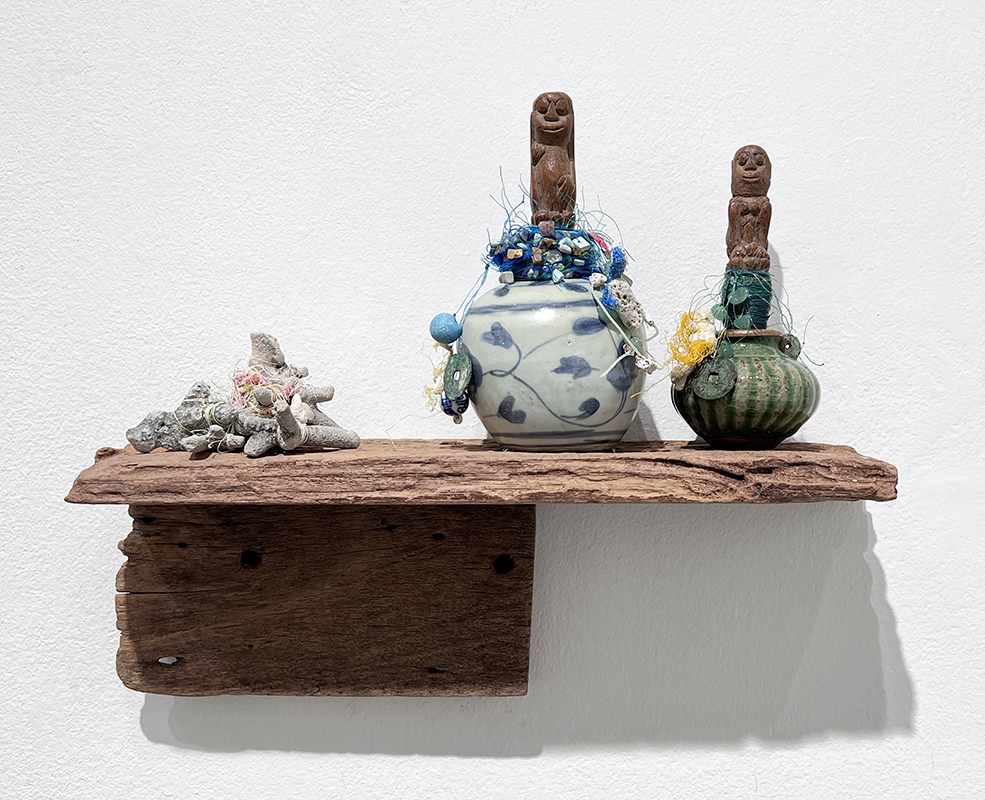Ari Bayuaji "The Water | The Body | The Spirit"(SINGAPORE)
25 February - 2 April 2023
Solo exhibition by Ari Bayuaji
25 February – 2 April 2023
Exhibition Walkthrough: Saturday, 25 February 2023, 3pm – 4pm
Vernissage: Saturday, 25 February 2023, 4pm – 7pm
Mizuma Gallery is pleased to announce The Water | The Body | The Spirit, a solo exhibition by Ari Bayuaji.
Known for his use of discarded ropes and plastic pollution found along the coasts of Sanur, Bali, to give life to majestic textiles echoing the deep blue and turquoise hues of the ocean, Ari Bayuaji’s ongoing project Weaving the Ocean not only provides us with visually mesmerising art pieces, but also, crucially, enables his art-making process to respond to issues of sustainability, waste management and upcycling, through transforming useless materials into new objects of greater value, artistically and environmentally.
Part of Weaving the Ocean, Bayuaji’s latest exhibition at Mizuma Gallery Singapore titled The Water | The Body | The Spirit delves further into the condition of Bali’s seashores, from a socio-philosophical perspective. As the title suggests, the exhibition examines three fundamental aspects of the artist’s practice: the water, which is his source of inspiration, a bountiful womb that carries away and restores to the shore fragments of past lives; our human body as we intervene on and relate to the environment and to history; and the spirit, a mystical essence that conveys and transforms energy through regeneration. Water is a conduit, bearing stories from the past to the present and towing with it memories and heirlooms: the ropes, twisted and contorted by the depth of the sea, are reused and manipulated in Bayuaji’s tapestries; also, ceramic remains and found objects become compelling sculptures and mixed-media installations in the exhibition. Expanding on his initial intent of recycling only ropes, fishing nets and plastic bottles, in The Water | The Body | The Spirit, Bayuaji includes driftwood and sculptures, as well as terracotta and ceramic fragments that through the decades have morphed with the unresting sea. The Water | The Body | The Spirit embraces this dual existence of water, as an element and a transformative spirit, to conjure an “aesthetic of the organic” that honours both the communal making of the works and their tribute as art.
Immersed in the dreamscape of the gallery, we become part of the ocean’s aura of mystery where once “found” objects transition from death to new life.
The Water | The Body | The Spirit, a solo exhibition by Ari Bayuaji, will run from 25 February to 2 April 2023 at Mizuma Gallery, 22 Lock Road #01-34 Gillman Barracks, Singapore 108939. The gallery will open from 11am-7pm on Tuesdays to Saturdays, and 11am-6pm on Sundays. The gallery will be closed on Mondays and Public Holidays. In conjunction with the launch of the exhibition, an artist-led exhibition walkthrough will held on Saturday, 25 February 2023, from 3pm to 4pm, followed by an opening reception from 4pm to 7pm. A digital publication featuring images of the artworks and a text by writer Loredana Pazzini-Paracciani will be available.
Text: © Loredana Pazzini-Paracciani and Mizuma Gallery.
“It has been many years since I began collecting various interesting objects found on the beaches in Bali. Many years ago, it was easy to find old Chinese coins, blue and white ceramic shards, and even beautiful sculptures on the shorelines. Unfortunately, in recent years, I have found more and more plastic objects.
I discovered an abundant supply of plastic ropes tangled in the roots of mangrove trees near Sanur on the coast of Bali. I had no idea what I was going to do with the plastic ropes at the very beginning. It was not until I learnt that throughout the years, Bali has been very open to influences from other foreign cultures. For example, found objects from Chinese shipwrecks such as Chinese coins and ceramic plates or jars had been used as big parts of Balinese Hindu ceremonial objects.
It is fascinating how the Balinese people have demonstrated an astonishing resilience in protecting their culture from external pressures, such as the onslaught of tourism and global economic downswings. Weaving the Ocean project began with that awareness. As one of their most important cultural heritages, textile has helped sustain the economy of Bali. Balinese people also make use of their traditional textiles, not only for their domestic needs, but also for their many religious and spiritual activities. The same goes with their wood or stone carvings, and terracotta production in many different forms.
I am very happy that I can use various materials in the installation featured in my first solo exhibition at Mizuma Gallery Singapore. The materials represent how connected we are in the history of humanity. For over hundreds of years, the production of objects has abounded around the world. The ocean connects us to many places, and Bali is one of the places in the world where these objects were destined to be. These objects have helped to shape arts and cultures in the society, both in the past and in this very contemporary time.”
— Ari Bayuaji, 2023
About the Artist
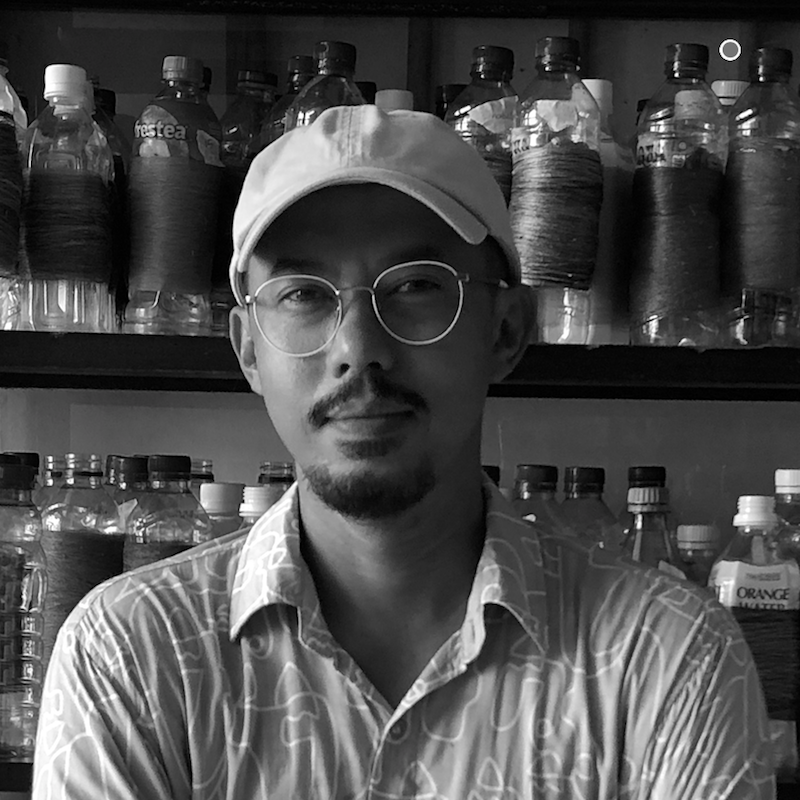 Ari Bayuaji (b. 1975, Mojokerto, Indonesia) graduated as a civil engineer and worked in Indonesia before deciding to move to Canada permanently in 2005. Once in Montreal, he studied Fine Arts at Concordia University from 2005 to 2010 and now divides his time between Montreal and Bali. The artist is known mainly for his art installations that incorporate the use of found and ready-made objects he collects from various parts of the world, thereby exposing himself to the different cultural traditions. He is an expert in conveying aspects of daily life within a culture as his works often expose the overlooked artistic value in everyday life expressed through objects and places and their roles within a society. Ari Bayuaji has taken part in numerous artist-in-residency programs in Canada, France, the Netherlands, Indonesia and Singapore. The artist’s work has been exhibited in major solo exhibitions in Singapore, Taipei (Taiwan), Ste-Alvère (France), Dusseldorf (Germany), Rotterdam and The Hague (The Netherlands), and Yogyakarta (Indonesia).
Ari Bayuaji (b. 1975, Mojokerto, Indonesia) graduated as a civil engineer and worked in Indonesia before deciding to move to Canada permanently in 2005. Once in Montreal, he studied Fine Arts at Concordia University from 2005 to 2010 and now divides his time between Montreal and Bali. The artist is known mainly for his art installations that incorporate the use of found and ready-made objects he collects from various parts of the world, thereby exposing himself to the different cultural traditions. He is an expert in conveying aspects of daily life within a culture as his works often expose the overlooked artistic value in everyday life expressed through objects and places and their roles within a society. Ari Bayuaji has taken part in numerous artist-in-residency programs in Canada, France, the Netherlands, Indonesia and Singapore. The artist’s work has been exhibited in major solo exhibitions in Singapore, Taipei (Taiwan), Ste-Alvère (France), Dusseldorf (Germany), Rotterdam and The Hague (The Netherlands), and Yogyakarta (Indonesia).
